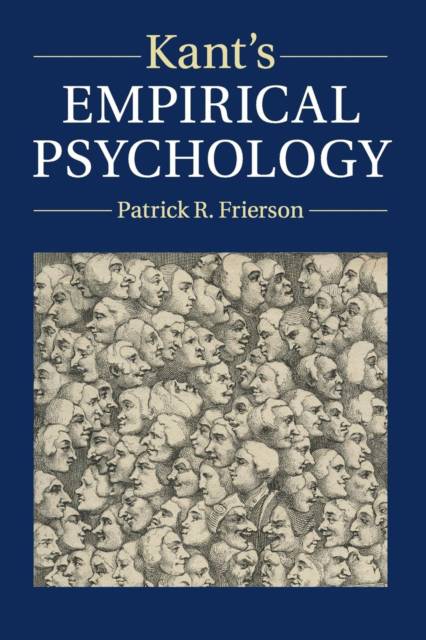
- Afhalen na 1 uur in een winkel met voorraad
- Gratis thuislevering in België vanaf € 30
- Ruim aanbod met 7 miljoen producten
- Afhalen na 1 uur in een winkel met voorraad
- Gratis thuislevering in België vanaf € 30
- Ruim aanbod met 7 miljoen producten
Zoeken
Omschrijving
Throughout his life, Kant was concerned with questions about empirical psychology. He aimed to develop an empirical account of human beings, and his lectures and writings on the topic are recognizable today as properly 'psychological' treatments of human thought and behavior. In this book Patrick R. Frierson uses close analysis of relevant texts, including unpublished lectures and notes, to study Kant's account. He shows in detail how Kant explains human action, choice, and thought in empirical terms, and how a better understanding of Kant's psychology can shed light on major concepts in his philosophy, including the moral law, moral responsibility, weakness of will, and cognitive error. Frierson also applies Kant's accounts of mental illness to contemporary philosophical issues. His book will interest students and scholars of Kant, the history of psychology, philosophy of psychology, and philosophy of action.
Specificaties
Betrokkenen
- Auteur(s):
- Uitgeverij:
Inhoud
- Aantal bladzijden:
- 292
- Taal:
- Engels
Eigenschappen
- Productcode (EAN):
- 9781316648469
- Verschijningsdatum:
- 16/03/2017
- Uitvoering:
- Paperback
- Formaat:
- Trade paperback (VS)
- Afmetingen:
- 152 mm x 229 mm
- Gewicht:
- 394 g

Alleen bij Standaard Boekhandel
+ 121 punten op je klantenkaart van Standaard Boekhandel
Beoordelingen
We publiceren alleen reviews die voldoen aan de voorwaarden voor reviews. Bekijk onze voorwaarden voor reviews.











